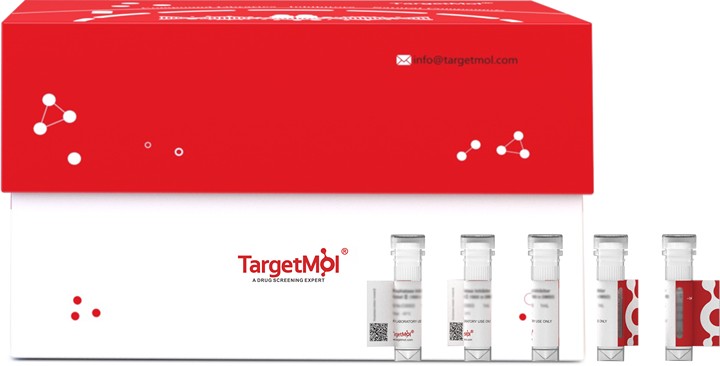Shopping Cart
Remove All Your shopping cart is currently empty
Your shopping cart is currently empty
TNFR1/CD120a/TNFRSF1A Protein, Human, Recombinant is expressed in CHO Cells. The accession number is P19438-1.

| Pack Size | Price | USA Warehouse | Global Warehouse | Quantity |
|---|---|---|---|---|
| 5 μg | $85 | 7-10 days | 7-10 days | |
| 10 μg | $138 | 7-10 days | 7-10 days | |
| 20 μg | $197 | 7-10 days | 7-10 days | |
| 50 μg | $339 | 7-10 days | 7-10 days |
| Biological Activity | ED 50 < 50.0 ng/ml, measured in a cell proliferation assay using 929 cells in the presence of 1.0 ng/ml human TNF-α. |
| Description | TNFR1/CD120a/TNFRSF1A Protein, Human, Recombinant is expressed in CHO Cells. The accession number is P19438-1. |
| Species | Human |
| Expression System | CHO Cells |
| Tag | Tag Free |
| Accession Number | P19438-1 |
| Synonyms | TNFRSF1A,TNFR60,TNF-R55,TNFAR,Soluble Tumor Necrosis Factor type I,p55,CD120a |
| Construction | Asp41-Asn202 |
| Protein Purity | > 95% as determined by SDS-PAGE |
| Molecular Weight | 28~35 kDa (Reducing conditions) |
| Endotoxin | < 0.2 EU/μg of protein as determined by the LAL method. |
| Formulation | Lyophilized from a 0.2 μm filtered solution in PBS. |
| Reconstitution | Reconstitute the lyophilized protein in sterile deionized water. The product concentration should not be less than 100 μg/ml. Before opening, centrifuge the tube to collect powder at the bottom. After adding the reconstitution buffer, avoid vortexing or pipetting for mixing. |
| Stability & Storage | Upon receiving, this product remains stable for up to 6 months at lower than -70°C. Upon reconstitution, the product should be stable for up to 1 week at 4°C or up to 3 months at -20°C. For long term storage it is recommended that a carrier protein (example 0.1% BSA) be added. Avoid repeated freeze-thaw cycles. |
| Shipping | In general, Lyophilized powders are shipping with blue ice. Solutions are shipping with dry ice. |
| Research Background | TNF Receptor Type I, is also known as TNF R-p55/p60 and TNFRSF1A. It is a type I transmembrane protein member of the TNF receptor superfamily. It is expressed in most cell types. Binding of either TNF-α or TNF-β to TNF-R1 initiates a signal transduction pathway that results in the activation of the transcription factor NF-κB, whose target genes are involved in the regulation of inflammatory responses, and, in certain cells, induce apoptosis. TNF-R1 is essential for proper development of lymph node germinal centers and Peyer’s patches and for combating intracellular pathogens such as Listeria. It is stored in the Golgi and translocates to the cell surface following proinflammatory stimuli. |
| Size | Quantity | Unit Price | Amount | Operation |
|---|

Copyright © 2015-2026 TargetMol Chemicals Inc. All Rights Reserved.